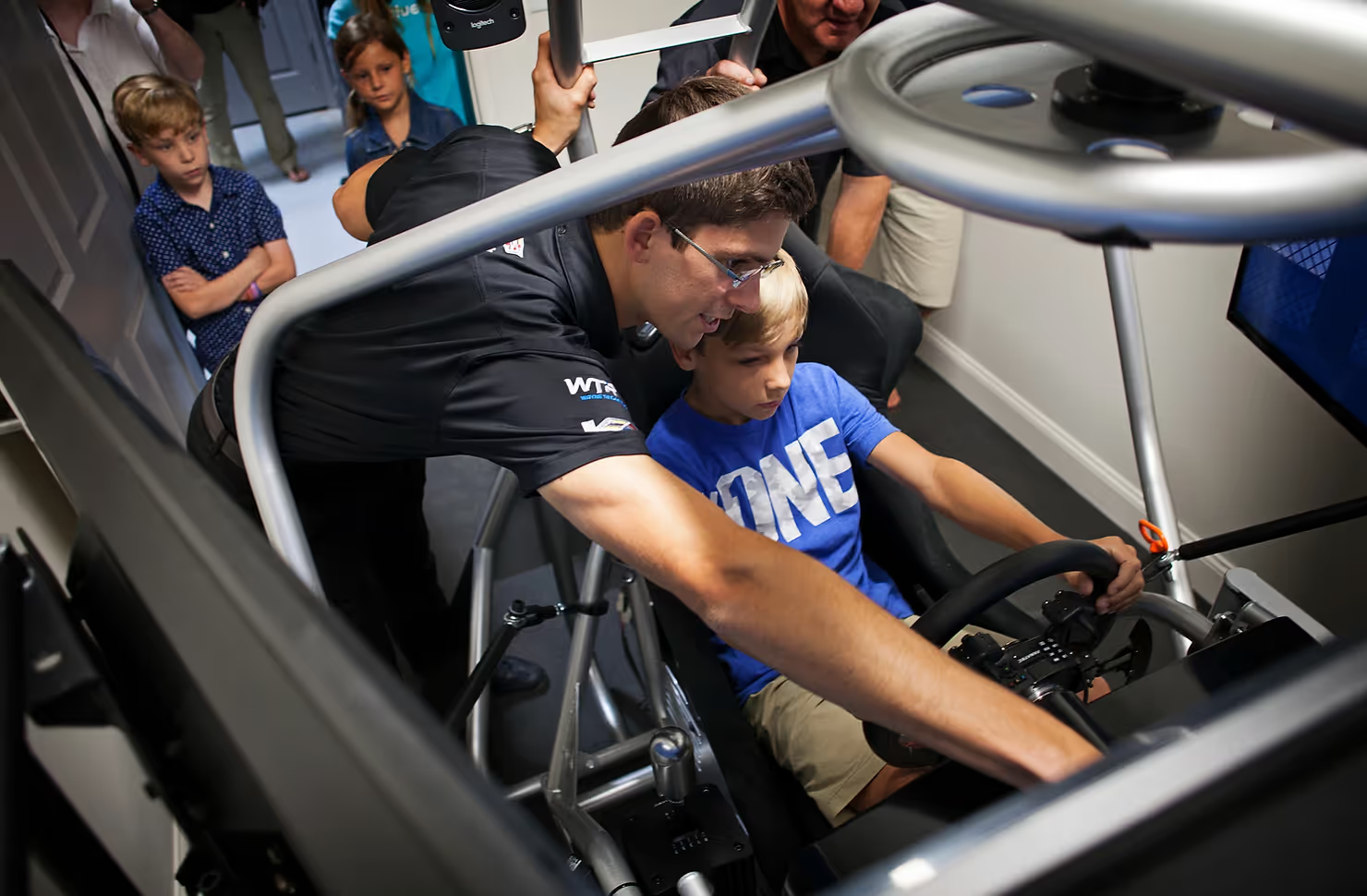Driving Towards a Better Future: Improving Brain Skills Through Driving Simulators

CHATTANOOGA, Tenn. (March 5, 2019) - The Austin Hatcher Foundation for Pediatric Cancer has launched an innovative cognitive program and study using driving simulators. The program allows pediatric cancer patients and their siblings to participate in fun, therapeutic activities while providing valuable information about children’s cognitive control skills. Driving simulators have been used around the world to improve the cognitive and executive function of intact and injured brains.
Some childhood cancer survivors develop learning problems, called cognitive impairments, as a result of the disease or cancer treatment. These problems affect cognitive control skills such as paying attention, how fast the brain works, memory, hand-eye coordination, and being able to stop and think. “Cancer treatment is especially aggressive for young children, and we’re grateful that the survival rate has increased to 80%. However, because treatment occurs while children are still growing, some side effects may not show up until years later,” said Dr. April Nesin, clinical psychologist and project lead for the study. “In order to improve these learning problems, we’ll have participants complete rounds on the driving simulator that are intended to require action, multi-tasking, and concentration.”
The driving simulator provides a real-world setting with full motion and sound, making it feel nearly identical to actually driving a car. Participants acquire and practice driving skills, then apply those skills in a racing video game format. “I’m very positive about the outcome of the study,” said Jonathan Myren, industrial arts director. “The kids love being on it because it’s fun, and they’re also experiencing a benefit to their memory, because there’s a lot of things you have to recall during the races. The goal is for them to learn from past mistakes, and then try to improve, even as the levels become more challenging.”
This study is entertaining, but it also places a high demand on cognitive control skills. This provides an opportunity for childhood cancer patients to potentially improve these skills more quickly, which are naturally developing at a slower rate due to cancer treatment.
“We have wonderful partners and co-investigators for this study, including the University of Pittsburgh School of Medicine, George Washington University School of Medicine, John’s Hopkin’s All Children’s Hospital, Boston Children’s Hospital/Harvard Medical School and the UT College of Medicine, Pediatric Hematology/Oncology Department,” said Patricia Kassebaum, director of clinical services and research. “We are also very lucky to have the SimCraft driving simulators and programs to complete the study with.”
Research has shown that video games that involve action, multitasking and attention have been shown to improve reading and attention skills, working memory and brain processing.
“Through this program, we are able to apply a unique and fun therapy that has proven results in intact and injured brains. We feel this is a key part of the Austin Hatcher Foundation’s mission to erase the effects of childhood cancer and improve each child’s quality of life.” said Dr. Jim Osborn, medical director at the Austin Hatcher Foundation.
The therapy and clinical study is provided at no cost to the family, as are all services offered by the Austin Hatcher Foundation for Pediatric Cancer.
To enroll in the study or learn more, contact Trent Whicker at 423.243.3475 or trent@hatcherfoundation.org.






